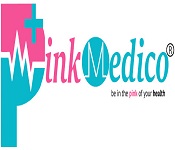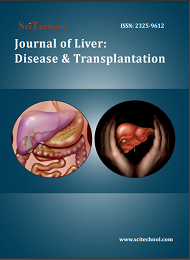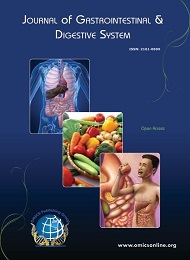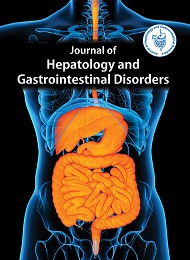Theme: Advance Research on Gastroenterology and Hepatology
Gastroenterology 2022
- About Conference
- Market Analysis
- Session/Tracks
- Participation Options and Benefits
- YRF (Young Research Forum)
On behalf of the Organizing and Scientific Committees we take great pleasure in welcoming academic scientists, research scholars, researchers, students and experts of application fields to London, UK for the 23th International Conference on Gastroenterology and Hepatology Conference.
Theme : Current trends in Gastroenterology and Hepatology
Details of Gastroenterology 2022 Conferences in London, UK
| Conference Name | Place | Date |
|---|---|---|
| Gastroenterology 2022 |
Best Western London Heathrow Ariel Hotel London, UK |
June 08-09, 2022 |
Gastroenterology-2022, which will be held 23rd International Conference on Gastroenterology and Hepatology on June 08-09, 2022 is now an established event, attracting global participant’s intent on sharing, exchanging and exploring the Global Conference on Gastroenterology and related research and latest developments. The event will have 5-6 world level (Highly cited class) plenary speakers, established Keynote speakers, active Invited speakers and fresh contributed speakers.
Salient Features:
- Well-structured workshops, events and symposia
- Renowned speakers and scientists across the globe
- Poster presentations and world class exhibits
- Panel discussions & interactive sessions
- Perfect platform for global networking
- B2B meetings
- Alliances and associations
- Collaborative Research opportunities
Benefits of Attending our Conference during Covid-19:
1. Learn from Top Professionals everywhere over the global.
2. Be accustomed to the most recent trends and challenges within your sector.
3. Share your research with top professors and acquire instant answers to your queries.
4. Participate in word session including live Q&A
Other Benefits of Joining Conference :
- Get your abstract published with DOI
- Get Certified for your participation
- Reduced Costs Affordability
- Knock Down Geographical Barriers
- Convenience from comfort of your own residence or from work
- Great resource for learning new career skills
- Learn from the Pros
- Global exposure to your research
- Make new connections
- Significant time saving
- Increased engagement
- Wider Reach
- More Engaging
- Position yourself because the expert
Targeted Audience :
- Gastroenterology and Hepatology Students, Scientists
- Gastroenterology and Hepatology Researchers/Eminent
- Gastroenterology and Hepatology Associations and Societies
- Business Entrepreneurs
- Gastroenterology and Hepatology Professors
- Members of Gastroenterology and Hepatology Associations
We invite you to affix us at the Gastroenterology-2022, where you’ll make sure to possess a meaningful experience expertly from around the globe.
All members of the Gastroenterology-2022 organizing committee expect to meeting you.
Market Analysis :
Gastroenterology is the branch of medicines that focus on the function, structure, pathology and disorders of the gastrointestinal system. Diseases which affect the gastrointestinal tract, i.e., organs from mouth to anus, along the alimentary canal, are the focus of this specialty. The market for gastrointestinal pharmaceuticals is divided into two segments: prescription gastrointestinal pharmaceuticals and OTC gastrointestinal pharmaceuticals. Similarly, the market for gastrointestinal diagnostics, testing and vaccines is divided into three segments: Diagnostics and testing market, endoscopy, Vaccines.
According to Market research, the World Gastrointestinal Drugs Market Revenue by geographical region in 2016, North America was highest by getting the overall revenue of 17,288 US Dollar Million, while the Middle East and Africa Continent having low generation of revenue. The prescription therapies market is expected to grow from $18.6 billion in 2016 to nearly $22.1 billion in 2021 at a CAGR of 3.5% for the period 2016-2021(approx.). The global diagnostics market will grow over the next five years from $17.7 billion in 2017 to $23.5 billion in 2021 at a CAGR of 5.9% for the period 2017-2021.
The gastrointestinal therapeutics market size is expected to reach around USD 13.8 billion by 2020, accelerating at a CAGR of 6.5% between 2016- 2020. This growth in market size is attributed to various factors including increasing consumption of biologics, tentative approval of late stage molecules, development of therapies using innovative technologies and improved diagnostic tools increasing the treatment-seeking population.
The Main aim of the market research is to increase the awareness of gastrointestinal disorders among people and to identify the gastrointestinal market landscape as well as important advancements. With the support of our organizing committee members, we take the privilege in scheduling the upcoming event “23rd International Conference on Gastroenterology and Hepatology” which is going to be held during June 08-09, 2022 in London, UK.
Gastroenterology is the study of the function and diseases of the throat, small digestive tract, stomach, colon and rectum, gallbladder, bile channels, pancreas and liver. It incorporates a point to point study of the normal action (physiology) of the gastrointestinal organs including the movement of material through the stomach and digestive system the absorption and retention of supplements to the body, removal of waste from the body, and the capacity of the liver as a digestive organ. Some possible areas of emphasis:
Recommended Conferences: Gastroenterology conferences | Gastroenterology Events | Hepatology Conferences | Hepatology Events | Gastroenterology Symposium | Gastroenterology Conferences in Asia | Hepatology Meetings in Europe | Hepatology Congress | Gastroenterology Workshops | Hepatology symposium | Hepatology Workshops | Gastroenterology Conferences 2020 | Hepatologists Meet | Euro Gastro 2020 | Gastroenterology meetings | Gastroenterology congress | Hepatology meetings | Hepatology congress | Digestive diseases Conferences | Hepatitis Conferences | Gastro Meet in USA | Liver and Hepatitis Conference in Middle East | Hepatology Conferences 2020
Colorectal and Intestinal Disorders
Gastrointestinal maladies allude to sicknesses including the gastrointestinal tract, to be specific the throat, stomach, small digestive tract, internal organ and rectum, and the adornment organs of ingestion, the liver, gallbladder, and pancreas. Gastrointestinal issue incorporates such conditions as obstructing, irritable inside clutter, hemorrhoids, butt-centric gaps, perianal abscesses, butt-centric fistulas, perianal contaminations, diverticular sicknesses, colitis, colon polyps and infection. Enormous quantities of these can be envisioned or constrained by keeping up a sound lifestyle, practicing extraordinary entrail inclinations, and submitting to tumor screening.
- Constipation
- Irritable bowel syndrome (sensitive colon; spastic colon)
- Anal disorders (Internal hemorrhoids and External hemorrhoids)
- Diverticular disease
- Polyps and cancer
- Colitis
Recommended Conferences: Gastroenterology conferences | Gastroenterology Events | Hepatology Conferences | Hepatology Events | Gastroenterology Symposium | Gastroenterology Conferences in Asia | Hepatology Meetings in Europe | Hepatology Congress | Gastroenterology Workshops | Hepatology symposium | Hepatology Workshops | Gastroenterology Conferences 2020 | Hepatologists Meet | Euro Gastro 2020 | Gastroenterology meetings | Gastroenterology congress | Hepatology meetings | Hepatology congress | Digestive diseases Conferences | Hepatitis Conferences | Gastro Meet in USA | Liver and Hepatitis Conference in Middle East | Hepatology Conferences 2020
The esophagus is the solid cylinder that conveys nourishment and fluids from your mouth to the stomach. You may not be aware of your esophagus until you swallow something excessively enormous, excessively hot, or excessively cold. You may likewise see it when something isn't right. You may feel torment or experience difficulty gulping. The most well-known issue with the throat is GERD (gastroesophageal reflux disease). With GERD, a muscle at the end of your esophagus doesn't close appropriately. This permits stomach contents to spill back, or reflux, into the throat and aggravate it. After some time, GERD can make harm the throat. Different issues incorporate acid reflux, malignant growth, and eosinophilic esophagitis. Specialists may utilize different tests to make a diagnosis. These include imaging tests, an upper endoscopy, and a biopsy. Treatment relies upon the issue; a few issues improve with over-the-counter medications or changes in diet. Others may require physician recommended medicines or medical procedure. The following are additional diseases and conditions that affect the esophagus:
- Esophageal atresia
- Esophageal cancer
- Esophageal dysphagia
- Esophageal varices
- Esophagitis
- Caustic injury to the esophagus
Recommended Conferences: Gastroenterology conferences | Gastroenterology Events | Hepatology Conferences | Hepatology Events | Gastroenterology Symposium | Gastroenterology Conferences in Asia | Hepatology Meetings in Europe | Hepatology Congress | Gastroenterology Workshops | Hepatology symposium | Hepatology Workshops | Gastroenterology Conferences 2020 | Hepatologists Meet | Euro Gastro 2020 | Gastroenterology meetings | Gastroenterology congress | Hepatology meetings | Hepatology congress | Digestive diseases Conferences | Hepatitis Conferences | Gastro Meet in USA | Liver and Hepatitis Conference in Middle East | Hepatology Conferences 2020
Gastrointestinal Bleeding and Pathology
Gastrointestinal bleeding is one of the essential complaints of the patients which could be interminable, mellow or deadly. Most of the conditions, GI bleeding are contained without anyone else's input, yet they are are anyway evaluated to keep up a strategic distance from a repeat and to stay away from advance movement of sickness, expecting any. Gastrointestinal pathology (including liver, gallbladder and pancreas) is a perceived sub-specialty discipline of surgical pathology. Acknowledgment of a sub-specialty is commonly identified with dedicated fellowship training offered within the subspecialty or, on the other hand, to surgical pathologists with an extraordinary intrigue and broad involvement with gastrointestinal pathology. The gastrointestinal (GI) pathology decides quality indicative histopathology on gastrointestinal endoscopic biopsies and resections of the gastrointestinal and pancreatico-biliary systems. Causes of Gastrointestinal Bleeding and Pathology :
- Peptic ulcer
- Esophagitis
- Diverticular disease
- Inflammatory bowel disease (IBD)
- Hemorrhoids
- Anal fissures
Recommended Conferences: Gastroenterology conferences | Gastroenterology Events | Hepatology Conferences | Hepatology Events | Gastroenterology Symposium | Gastroenterology Conferences in Asia | Hepatology Meetings in Europe | Hepatology Congress | Gastroenterology Workshops | Hepatology symposium | Hepatology Workshops | Gastroenterology Conferences 2020 | Hepatologists Meet | Euro Gastro 2020 | Gastroenterology meetings | Gastroenterology congress | Hepatology meetings | Hepatology congress | Digestive diseases Conferences | Hepatitis Conferences | Gastro Meet in USA | Liver and Hepatitis Conference in Middle East | Hepatology Conferences 2020
Gallstones and Bile Duct Stones
Bile duct stones are gallstones in the bile duct. They can begin in the gallbladder and move into the bile duct or they can shape in the bile duct itself. The stones can become lodged in the bile duct, causing a blockage. Gallstones and bile duct stones (also known as choledocholithiasis) are the same, just located in two different areas of the body. Stones may pass immediately out of the bile duct on their own. However, when a stone gets stuck in the bile duct, medicinal intercession is necessary, generally irritation, bacterial infection, and even extreme organ harm can happen. Treatments of Gallstones and Bile Duct Stones :
Recommended Conferences: Gastroenterology conferences | Gastroenterology Events | Hepatology Conferences | Hepatology Events | Gastroenterology Symposium | Gastroenterology Conferences in Asia | Hepatology Meetings in Europe | Hepatology Congress | Gastroenterology Workshops | Hepatology symposium | Hepatology Workshops | Gastroenterology Conferences 2020 | Hepatologists Meet | Euro Gastro 2020 | Gastroenterology meetings | Gastroenterology congress | Hepatology meetings | Hepatology congress | Digestive diseases Conferences | Hepatitis Conferences | Gastro Meet in USA | Liver and Hepatitis Conference in Middle East | Hepatology Conferences 2020
Gastrointestinal Infection and Viral Gastroenteritis
Gastrointestinal infections are viral, bacterial or parasitic infections that cause gastroenteritis, an irritation of the gastrointestinal tract including both the stomach and the small intestine. Symptoms include diarrhoea, vomiting, and abdominal pain. Lack of hydration is the main danger of gastrointestinal infections, so rehydration is significant, yet most gastrointestinal infections are self- constrained and resolve within a couple of days. Viral gastroenteritis is an intestinal infection marked by watery diarrhoea, abdominal cramps, nausea or vomiting, and sometimes fever. The most common way to develop viral gastroenteritis — often called stomach flu — is through contact with an infected individual or by ingesting contaminated food or water. If you're otherwise healthy, you'll likely recover without complications. Yet, for babies, older adults and people with compromised immune systems, viral gastroenteritis can be deadly. Types of gastrointestinal infections & Viral Gastroenteritis :
Recommended Conferences: Gastroenterology conferences | Gastroenterology Events | Hepatology Conferences | Hepatology Events | Gastroenterology Symposium | Gastroenterology Conferences in Asia | Hepatology Meetings in Europe | Hepatology Congress | Gastroenterology Workshops | Hepatology symposium | Hepatology Workshops | Gastroenterology Conferences 2020 | Hepatologists Meet | Euro Gastro 2020 | Gastroenterology meetings | Gastroenterology congress | Hepatology meetings | Hepatology congress | Digestive diseases Conferences | Hepatitis Conferences | Gastro Meet in USA | Liver and Hepatitis Conference in Middle East | Hepatology Conferences 2020
Gastroparesis is a medical term for delayed emptying of stomach contents. It occurs from harm to the vagus nerve that reaches out from the brain to the stomach and is generally connected with type 1 and type 2 diabetes. Unregulated high blood sugar (glucose) levels of diabetes harm nerves and veins all through the body, incorporating the vagus nerve in the gastrointestinal tract. Idiopathic gastroparesis is a similar condition in which the exact cause is unknown. It is treated in a similar way as diabetes-related gastroparesis. Most common symptoms of Gastroparesis :
Recommended Conferences: Gastroenterology conferences | Gastroenterology Events | Hepatology Conferences | Hepatology Events | Gastroenterology Symposium | Gastroenterology Conferences in Asia | Hepatology Meetings in Europe | Hepatology Congress | Gastroenterology Workshops | Hepatology symposium | Hepatology Workshops | Gastroenterology Conferences 2020 | Hepatologists Meet | Euro Gastro 2020 | Gastroenterology meetings | Gastroenterology congress | Hepatology meetings | Hepatology congress | Digestive diseases Conferences | Hepatitis Conferences | Gastro Meet in USA | Liver and Hepatitis Conference in Middle East | Hepatology Conferences 2020
The gut microbiome is comprised of billions of bacteria and other microorganisms that exist together with other human cells in the lower intestine. Gut microbiota assists with absorption, immune function and brain health. Our gut microbiome starts to develop in very early life, and is affected by genetics, delivery method, age, stress, sickness, environment, drug use, and diet. The ‘balance’ of our gut can be disturbed by a few variables, and this can promote inflammation – a potent risk factor for physical and mental issue. Gut Microbiome and Diseases :
Recommended Conferences: Gastroenterology conferences | Gastroenterology Events | Hepatology Conferences | Hepatology Events | Gastroenterology Symposium | Gastroenterology Conferences in Asia | Hepatology Meetings in Europe | Hepatology Congress | Gastroenterology Workshops | Hepatology symposium | Hepatology Workshops | Gastroenterology Conferences 2020 | Hepatologists Meet | Euro Gastro 2020 | Gastroenterology meetings | Gastroenterology congress | Hepatology meetings | Hepatology congress | Digestive diseases Conferences | Hepatitis Conferences | Gastro Meet in USA | Liver and Hepatitis Conference in Middle East | Hepatology Conferences 2020
Inflammatory Bowel Disease(IBD) is an idiopathic disease caused by a dysregulated resistant reaction to have intestinal microflora. The two major types of Inflammatory Bowel Disease are ulcerative colitis (UC), which is confined to the colonic mucosa, and Crohn’s diseases (CD), which can impact any system of the gastrointestinal tract from the mouth to the butt, incorporates "skip sores," and is transmural. There is a hereditary inclination for IBD, and patients with this condition are more inclined to the development of malignancy. Two major types of IBD:
Recommended Conferences: Gastroenterology conferences | Gastroenterology Events | Hepatology Conferences | Hepatology Events | Gastroenterology Symposium | Gastroenterology Conferences in Asia | Hepatology Meetings in Europe | Hepatology Congress | Gastroenterology Workshops | Hepatology symposium | Hepatology Workshops | Gastroenterology Conferences 2020 | Hepatologists Meet | Euro Gastro 2020 | Gastroenterology meetings | Gastroenterology congress | Hepatology meetings | Hepatology congress | Digestive diseases Conferences | Hepatitis Conferences | Gastro Meet in USA | Liver and Hepatitis Conference in Middle East | Hepatology Conferences 2020
Advances in Gastrointestinal Endoscopy
Gastrointestinal endoscopy is a technique that enables your specialist to look at inside covering of your throat your stomach, and the underlying section of your small digestive tract. A thin, adaptable review apparatus called an endoscope (scope) is utilized. High-definition and magnification endoscopes with electronic chromo endoscopy capability make it simpler to envision unobtrusive injuries, for example, small and flat polyps and patches of dysplastic gastrointestinal mucosa. They permit exact portrayal of polyps, which may later on enable us to specifically resect just precancerous colonic polyps, while ignoring small considerate hyperplastic polyps, which in turn will result in significant healthcare savings. New advanced choledochoscopes have tremendously improved symptomatic and remedial capacities inside the bile and pancreatic duct. Confocal endomicroscopy now enables us to perform microscopic evaluation of living tissues, improving focused biopsies in Barrett's oesophagus and supporting in the assessment of bile duct strictures and pancreatic cysts. Similarly, technological advances in endoscopic ultrasound, optical coherence tomography and spectroscopy hold great promise for improving indicative and remedial abilities for gastrointestinal illness.New Endoscopic Technique :
- Chromoendoscopy
- Narrow-Band Imaging
- Flexible Spectral Imaging Color Enhancement
- I-Scan
- Magnifying Endoscopy
- Confocal Laser Endomicroscopy
Recommended Conferences: Gastroenterology conferences | Gastroenterology Events | Hepatology Conferences | Hepatology Events | Gastroenterology Symposium | Gastroenterology Conferences in Asia | Hepatology Meetings in Europe | Hepatology Congress | Gastroenterology Workshops | Hepatology symposium | Hepatology Workshops | Gastroenterology Conferences 2020 | Hepatologists Meet | Euro Gastro 2020 | Gastroenterology meetings | Gastroenterology congress | Hepatology meetings | Hepatology congress | Digestive diseases Conferences | Hepatitis Conferences | Gastro Meet in USA | Liver and Hepatitis Conference in Middle East | Hepatology Conferences 2020
Therapeutic and Diagnostic Gastroenterology
Therapeutic and Diagnostic Gastroenterology provides a full range of advanced diagnostic and therapeutic endoscopic procedures which includes diagnostic and therapeutic ERCP for pancreatitis pathologies (papillotomy, stone extraction, stricture dilation and stenting, lithotripsy, peroral choledochoscopy and pancreatoscopy), endoscopic ultrasonography which include fine needle aspiration cytology and biopsy and target treatment. Other advanced methods including therapy for Barrett’s esophagus and early cancer including radiofrequency ablation, cyrotherapy and endoscopic mucosal resection. A portion of these diagnostic tools must be sterilized before using since they go about way for infection transmission.Types of Therapeutic and Diagnostic Gastroenterology:
Recommended Conferences: Gastroenterology conferences | Gastroenterology Events | Hepatology Conferences | Hepatology Events | Gastroenterology Symposium | Gastroenterology Conferences in Asia | Hepatology Meetings in Europe | Hepatology Congress | Gastroenterology Workshops | Hepatology symposium | Hepatology Workshops | Gastroenterology Conferences 2020 | Hepatologists Meet | Euro Gastro 2020 | Gastroenterology meetings | Gastroenterology congress | Hepatology meetings | Hepatology congress | Digestive diseases Conferences | Hepatitis Conferences | Gastro Meet in USA | Liver and Hepatitis Conference in Middle East | Hepatology Conferences 2020
Gastrointestinal Radiology and Imaging
Gastrointestinal Radiology or GI Imaging utilizes a state of constant x-beam called fluoroscopy and a barium-based separate texture to make photos of the stomach, throat, digestive tract and other parts of stomach related structure. It is secure, non-invasive, and may be habituated to benefit absolutely destructive reflux, analyze torment, blood in the stool & other side effects. Computed tomography now permits the comprehensive assessment of abdominal and pelvic inflammatory and infectious processes, obstruction, tumor identification and staging, and show of vasculature and obtuse injury impacts. Barium studies of the gastrointestinal tract, enteroclysis for small-bowel assessment, and conventional radiography still have a role, regardless of the broad utilization of fibreoptic endoscopy. Fluoroscopy is as yet significant; however extraordinary advances in innovations have changed gastrointestinal radiology unavoidably. Gastrointestinal Radiology and Imaging is subdivided into four sections:
- Gastrointestinal Radiology
- Genitourinary Radiology
- Abdominal Computed Tomography (CT)
- Abdominal Magnetic Resonance Imaging (MR)
Recommended Conferences: Gastroenterology conferences | Gastroenterology Events | Hepatology Conferences | Hepatology Events | Gastroenterology Symposium | Gastroenterology Conferences in Asia | Hepatology Meetings in Europe | Hepatology Congress | Gastroenterology Workshops | Hepatology symposium | Hepatology Workshops | Gastroenterology Conferences 2020 | Hepatologists Meet | Euro Gastro 2020 | Gastroenterology meetings | Gastroenterology congress | Hepatology meetings | Hepatology congress | Digestive diseases Conferences | Hepatitis Conferences | Gastro Meet in USA | Liver and Hepatitis Conference in Middle East | Hepatology Conferences 2020
Gastrointestina Oncology
The tumours of the gastrointestinal tract and extra organs which demonstrate the signs of internal dying, intense agonies, swelling, failure to process, trouble in swallowing or perpetual blockage or intense loose bowels. Gastrointestinal diseases are ordered into 2 type upper gastrointestinal malignancies and lower gastrointestinal tract tumours. Finding requires endoscopy took after by biopsy if there is a doubt or a blister. Upper stomach related tract malignancies incorporate diseases of Esophagus, Stomach, Pancreas, liver, Gall bladder, and MALT. Lower stomach related tract ailments incorporate colorectal malignancy, butt-centric development, enormous and small digestive system malignancies, retroperitoneum and carcinoid tumour.
- Esophageal Oncology
- Stomach Oncology
- Pancreatic Oncology
- Liver Oncology
- Gallbladder Oncology
- Gastrointestinal carcinoid tumor
- Colorectal Oncology
- Anal Oncology
Recommended Conferences: Gastroenterology conferences | Gastroenterology Events | Hepatology Conferences | Hepatology Events | Gastroenterology Symposium | Gastroenterology Conferences in Asia | Hepatology Meetings in Europe | Hepatology Congress | Gastroenterology Workshops | Hepatology symposium | Hepatology Workshops | Gastroenterology Conferences 2020 | Hepatologists Meet | Euro Gastro 2020 | Gastroenterology meetings | Gastroenterology congress | Hepatology meetings | Hepatology congress | Digestive diseases Conferences | Hepatitis Conferences | Gastro Meet in USA | Liver and Hepatitis Conference in Middle East | Hepatology Conferences 2020
Medications used to treat depression, anxiety, and seizures have become progressively appealing specialists for use in utilitarian gastrointestinal disorders because since they follow up on the central and peripheral nervous system to regulate state of mind, instinctive, and neuropathic pain, as well as autonomic function, in part, through anticholinergic effects. The gastrointestinal ailments require treatment and the pharmacological treatments are partitioned into two classes the physician recommended drugs and Over the Counter (OTC Drugs). The medications are prescribed in perspective on gastrointestinal tract issue, gastrointestinal tract dividers issue, and gastrointestinal motility issue.
GI Pharmacology used for :
- Peptic ulcers and gastroesophageal reflux disease (GERD)
- Chemotherapy-induced emesis
- Diarrhea
- Constipation
Recommended Conferences: Gastroenterology conferences | Gastroenterology Events | Hepatology Conferences | Hepatology Events | Gastroenterology Symposium | Gastroenterology Conferences in Asia | Hepatology Meetings in Europe | Hepatology Congress | Gastroenterology Workshops | Hepatology symposium | Hepatology Workshops | Gastroenterology Conferences 2020 | Hepatologists Meet | Euro Gastro 2020 | Gastroenterology meetings | Gastroenterology congress | Hepatology meetings | Hepatology congress | Digestive diseases Conferences | Hepatitis Conferences | Gastro Meet in USA | Liver and Hepatitis Conference in Middle East | Hepatology Conferences 2020
Gastroenterological Transplantation
The major gastroenterological transplantations are of liver, pancreas, esophagus, little digestive system, and colon till now. The transplantation is a significant medical procedure, and so the quiet must be under observatory and post-transplantation. Most of the times, the complications emerge after the operation, where the body begins dismissing the join or the organ. Liver transplantation is a surgery to evacuate the infected or harmed liver and transplant it with a entirety modern solid liver or a fragment of the liver from another/healthy person, who is called as a donor. People with intense or inveterate liver failure experience a liver transplant to endure. Complications of Solid Organ Transplantation:
- Gastrointestinal complaints after SOT
- Graft dysfunction, adverse effects of medications in India
- First 6 months – Infectious complications
Recommended Conferences: Gastroenterology conferences | Gastroenterology Events | Hepatology Conferences | Hepatology Events | Gastroenterology Symposium | Gastroenterology Conferences in Asia | Hepatology Meetings in Europe | Hepatology Congress | Gastroenterology Workshops | Hepatology symposium | Hepatology Workshops | Gastroenterology Conferences 2020 | Hepatologists Meet | Euro Gastro 2020 | Gastroenterology meetings | Gastroenterology congress | Hepatology meetings | Hepatology congress | Digestive diseases Conferences | Hepatitis Conferences | Gastro Meet in USA | Liver and Hepatitis Conference in Middle East | Hepatology Conferences 2020
Abdominal pain, also called a stomach ache, is pain that is typically situated under the rib cage and above the pelvic region. An inflammation that influences the small or large intestines, kidneys, appendix, spleen, stomach, gallbladder, liver or pancreas can cause abdominal pain. Infections (viral, bacterial or parasitic) influence the intestines and stomach may cause serious abdominal pain. Your primary care doctor can typically diagnose abdominal pain by evaluating your physical signs and symptoms. Treatment for abdominal pain is dependent upon the conditions that could be causing the pain, the age of the patient and the patient’s medical history. Patients with a viral stomach bug or indigestion may be able to ease side effects by resting the stomach and abstaining from eating for a period.
Recommended Conferences: Gastroenterology conferences | Gastroenterology Events | Hepatology Conferences | Hepatology Events | Gastroenterology Symposium | Gastroenterology Conferences in Asia | Hepatology Meetings in Europe | Hepatology Congress | Gastroenterology Workshops | Hepatology symposium | Hepatology Workshops | Gastroenterology Conferences 2020 | Hepatologists Meet | Euro Gastro 2020 | Gastroenterology meetings | Gastroenterology congress | Hepatology meetings | Hepatology congress | Digestive diseases Conferences | Hepatitis Conferences | Gastro Meet in USA | Liver and Hepatitis Conference in Middle East | Hepatology Conferences 2020
Hepatology is a branch of medicine concerned with the investigation, anticipation, analysis and management of infections that impact the liver, gallbladder, biliary and pancreas. The future of hepatology promises to eradicate Hepatitis C virus infection, a new challenge has taken its place. Obesity and metabolic disorder and related non-alcoholic fatty liver diseases are replacing hepatitis C virus as the most common cause of chronic liver diseases in western countries. Incredible progress in molecular biology, therapeutics, imaging and surgery has vastly improved the understanding and treatment of childhood liver disorders. Surgical advancements in liver transplantation currently allow for a lower age or weight limit for recipients. Furthermore, most children with liver diseases or with liver transplantation today survive well into adulthood.Some of the procedures hepatologists are required to perform include the following:
- Endoscopic retrograde cholangiopancreatographyL
- Transhepatic pancreato-cholangiography
- Transjugular intrahepatic portosystemic shunt
Recommended Conferences: Gastroenterology conferences | Gastroenterology Events | Hepatology Conferences | Hepatology Events | Gastroenterology Symposium | Gastroenterology Conferences in Asia | Hepatology Meetings in Europe | Hepatology Congress | Gastroenterology Workshops | Hepatology symposium | Hepatology Workshops | Gastroenterology Conferences 2020 | Hepatologists Meet | Euro Gastro 2020 | Gastroenterology meetings | Gastroenterology congress | Hepatology meetings | Hepatology congress | Digestive diseases Conferences | Hepatitis Conferences | Gastro Meet in USA | Liver and Hepatitis Conference in Middle East | Hepatology Conferences 2020
Hepatitis occurs due to the inflammation in tissues of liver caused due to viral infection which can harm the organ which may further leads to cirrhosis, fibrosis and liver cancer. Hepatitis is a devastating that progress slowly but results in damage of the liver. Hepatitis A is the most common cause’s acute hepatitis in children in Middle East. Establishment of HBV vaccination to cover all neonates and high-risk group, screening of donor blood can help in improving the case. Recent progression in treating hepatitis based on steady enhancements can change it to new forthcoming treatments that can be possibly relieved. Liver diseases can be acquired (hereditary) or brought about by an assortment of components that harm the liver, for example, as infections and alcohol use. Obesity is also associated with liver damage. After some time, harm to the liver brings about scarring (cirrhosis), which can lead to liver failure, a life-threatening condition?Five types of Hepatitis and Liver Diseases:
Recommended Conferences: Gastroenterology conferences | Gastroenterology Events | Hepatology Conferences | Hepatology Events | Gastroenterology Symposium | Gastroenterology Conferences in Asia | Hepatology Meetings in Europe | Hepatology Congress | Gastroenterology Workshops | Hepatology symposium | Hepatology Workshops | Gastroenterology Conferences 2020 | Hepatologists Meet | Euro Gastro 2020 | Gastroenterology meetings | Gastroenterology congress | Hepatology meetings | Hepatology congress | Digestive diseases Conferences | Hepatitis Conferences | Gastro Meet in USA | Liver and Hepatitis Conference in Middle East | Hepatology Conferences 2020
Gastroenterology & Pregnancy
In the gastrointestinal (GI) tract, normal physiological changes during pregnancy produce emotional modifications. Pregnancy, therefore, represents a special medicinal stress to the GI tract, and for some ladies, is a time of vulnerability for the development of new or exacerbation of existing GI disorders. These progressions may cause new symptoms, worsen pre-existing disease, or mask conceivably dangerous sickness. An absence of involvement with managing these indications can have obliterating impacts. The doctor must have the option to recognize whether these symptoms are those of normal pregnancy or a potentially life-threatening complication such as preeclampsia. The doctor should likewise know which prescriptions are safe in pregnancy, as well as which tests are safe to perform during pregnancy. Common GI complaints during pregnancy:
Recommended Conferences: Gastroenterology conferences | Gastroenterology Events | Hepatology Conferences | Hepatology Events | Gastroenterology Symposium | Gastroenterology Conferences in Asia | Hepatology Meetings in Europe | Hepatology Congress | Gastroenterology Workshops | Hepatology symposium | Hepatology Workshops | Gastroenterology Conferences 2020 | Hepatologists Meet | Euro Gastro 2020 | Gastroenterology meetings | Gastroenterology congress | Hepatology meetings | Hepatology congress | Digestive diseases Conferences | Hepatitis Conferences | Gastro Meet in USA | Liver and Hepatitis Conference in Middle East | Hepatology Conferences 2020
Pancreatic cancer starts when abnormal cells within the pancreas grow out of control and forms a tumour. There are two kinds of cells in the pancreas, the exocrine cells and endocrine cells, these cells likewise have various functions. About 94% of pancreatic cancers are delegated exocrine tumors. The tumors start in the exocrine cells that make pancreatic enzymes which help in digestion. Inside this classification, most tumours are adenocarcinomas. Pancreatic neuroendocrine tumors represent about 6% of every single pancreatic tumor. They may be benign or malignant and they tend to g develop more slowly than exocrine tumors. Pancreatic cancer can likewise spread to close by lymph nodes (part of the immune system), blood vessels or nerves. Cancer cells may head out through the bloodstream to different parts of the body, for example, the liver. Treatment for pancreatic cancer may include surgery, chemotherapy, radiation therapy or a mix of these.
Prevention Pancreatic Tumor and Cancer
Recommended Conferences: Gastroenterology conferences | Gastroenterology Events | Hepatology Conferences | Hepatology Events | Gastroenterology Symposium | Gastroenterology Conferences in Asia | Hepatology Meetings in Europe | Hepatology Congress | Gastroenterology Workshops | Hepatology symposium | Hepatology Workshops | Gastroenterology Conferences 2020 | Hepatologists Meet | Euro Gastro 2020 | Gastroenterology meetings | Gastroenterology congress | Hepatology meetings | Hepatology congress | Digestive diseases Conferences | Hepatitis Conferences | Gastro Meet in USA | Liver and Hepatitis Conference in Middle East | Hepatology Conferences 2020
Hepato-pancreato-biliary disease
Hepato-pancreato-biliary disease alludes to any condition that influences the liver, pancreas, gallbladder, and the bile ducts. These ailments usually share some indications or side effects, for example, jaundice, darker urine colour, and lighter stool colour. While some have hereditary or inherited causes, most are because of chronic damage to the tissues of the organs involved. These conditions are dealt with and managed by hepatologists, hepato-pancreato-biliary oncologists, and transplant specialists. List of common hepato-pancreato-biliary diseases:
Recommended Conferences: Gastroenterology conferences | Gastroenterology Events | Hepatology Conferences | Hepatology Events | Gastroenterology Symposium | Gastroenterology Conferences in Asia | Hepatology Meetings in Europe | Hepatology Congress | Gastroenterology Workshops | Hepatology symposium | Hepatology Workshops | Gastroenterology Conferences 2020 | Hepatologists Meet | Euro Gastro 2020 | Gastroenterology meetings | Gastroenterology congress | Hepatology meetings | Hepatology congress | Digestive diseases Conferences | Hepatitis Conferences | Gastro Meet in USA | Liver and Hepatitis Conference in Middle East | Hepatology Conferences 2020
Gastrointestinal and Minimally Invasive Surgery
Gastrointestinal Surgery deals significantly with the stomach and gastro-intestinal tract. A general specialist manages focal centre of life structures, immunology, concentrated care, digestion, neoplasia, nourishment, pathology, physiology, stun and revival, and wound recuperating. Technologically advanced minimally invasive surgery, which can include robotic-assisted techniques, requires incisions just millimetres long. The small incisions make a path for special surgical instruments and a fiber-optic instrument called a laparoscope, which is inserted into the abdominal wall. The device transmits images from inside the body to a video screen, allowing the surgeon to see the operative area on the screen. Advantages to the minimally invasive approach can incorporate speedier recuperation times, shorter hospital stays and decreased blood loss during surgery.
- Type of gastrointestinal surgery that involves smaller incisions and shorter recovery time
- Uses fiber optics and a high-def camera to project the surgical field onto a screen
- Preferred method for bariatric weight- loss surgery, and to treat benign colorectal cancer
- Involves gastrointestinal surgery
Recommended Conferences: Gastroenterology conferences | Gastroenterology Events | Hepatology Conferences | Hepatology Events | Gastroenterology Symposium | Gastroenterology Conferences in Asia | Hepatology Meetings in Europe | Hepatology Congress | Gastroenterology Workshops | Hepatology symposium | Hepatology Workshops | Gastroenterology Conferences 2020 | Hepatologists Meet | Euro Gastro 2020 | Gastroenterology meetings | Gastroenterology congress | Hepatology meetings | Hepatology congress | Digestive diseases Conferences | Hepatitis Conferences | Gastro Meet in USA | Liver and Hepatitis Conference in Middle East | Hepatology Conferences 2020
Obesity and Bariatric Surgery
Obesity has become a worldwide health problem that adds to various dangerous and disabling diseases, for example, type 2 diabetes mellitus and coronary artery disease. Bariatric surgery (weight reduction surgery) incorporates an assortment of techniques performed on individuals who have obesity. This is finished by decreasing the size of the stomach with a gastric band or through evacuation of a bit of the stomach or by resecting and re-directing the small intestine to a small stomach pouch. The U.S. National Institutes of Health prescribes bariatric surgery for corpulent individuals with a body mass record (BMI) of no under 40, and for people with BMI of no under 35 and genuine coinciding therapeutic conditions.
Causes Obesity and Bariatric Surgery:
Recommended Conferences: Gastroenterology conferences | Gastroenterology Events | Hepatology Conferences | Hepatology Events | Gastroenterology Symposium | Gastroenterology Conferences in Asia | Hepatology Meetings in Europe | Hepatology Congress | Gastroenterology Workshops | Hepatology symposium | Hepatology Workshops | Gastroenterology Conferences 2020 | Hepatologists Meet | Euro Gastro 2020 | Gastroenterology meetings | Gastroenterology congress | Hepatology meetings | Hepatology congress | Digestive diseases Conferences | Hepatitis Conferences | Gastro Meet in USA | Liver and Hepatitis Conference in Middle East | Hepatology Conferences 2020
Neurogastroenterology and Motility
Normal contractions of the gut (called peristalsis) move food down the intestinal tract from the oral hole to the rectum and encourage assimilation of nutrients supplements. These peristaltic compressions happen when the muscle layers of the gut and the nerves inserted in them cooperate in a synchronized way. Motility issue of the gut can occur in relationship with abnormalities in other organ systems, for example, the central nervous system, mitochondrial disorders, muscular dystrophies and others. Neurogastroenterology helps in the comprehension of the components of the parasympathetic, thoughtful, and enteric divisions of the gastrointestinal tract. Neurons are accessible on each surface of our body. It is a direct result of these neurons that we feel and can do of the deliberate and automatic activities. So additionally, neurons are likewise found on the gastrointestinal surfaces. It is a direct result of these neurons that we can swallow the nourishment, and which is then taken to the particular organs for their working, which thus is again organized by the cerebrum. Specialized, Multidisciplinary Care for a Range of Issues:
Recommended Conferences: Gastroenterology conferences | Gastroenterology Events | Hepatology Conferences | Hepatology Events | Gastroenterology Symposium | Gastroenterology Conferences in Asia | Hepatology Meetings in Europe | Hepatology Congress | Gastroenterology Workshops | Hepatology symposium | Hepatology Workshops | Gastroenterology Conferences 2020 | Hepatologists Meet | Euro Gastro 2020 | Gastroenterology meetings | Gastroenterology congress | Hepatology meetings | Hepatology congress | Digestive diseases Conferences | Hepatitis Conferences | Gastro Meet in USA | Liver and Hepatitis Conference in Middle East | Hepatology Conferences 2020
Nutrition and Dietetics in Gastroenterology
Nutrition is the study of nutrients in food, how the body utilizes supplements, and the connection between diet, health, and infection. Nutrition has become more focused on metabolism and metabolic pathways (biochemical steps) through which substances inside the body are changed starting with one structure then onto the next. Nutrition also focuses on how diseases, conditions, and issues can be prevented or reduced with a healthy diet. A very low-calorie diet (VLCD) is a clinically managed eating routine plan that includes eating around 800 calories every day or less which prevents Gastrointestinal disorders. Probiotics are microorganisms that give medical advantages when consumed. The term probiotic is right now used to name ingested microorganisms related with benefits for human and animals. Probiotics have numerous advantages such as reducing gastrointestinal stress, improving immune health and in relieving constipation. Dietary enzymes and Single cell proteins can be used as supplements. GI is primarily responsible for :
Recommended Conferences: Gastroenterology conferences | Gastroenterology Events | Hepatology Conferences | Hepatology Events | Gastroenterology Symposium | Gastroenterology Conferences in Asia | Hepatology Meetings in Europe | Hepatology Congress | Gastroenterology Workshops | Hepatology symposium | Hepatology Workshops | Gastroenterology Conferences 2020 | Hepatologists Meet | Euro Gastro 2020 | Gastroenterology meetings | Gastroenterology congress | Hepatology meetings | Hepatology congress | Digestive diseases Conferences | Hepatitis Conferences | Gastro Meet in USA | Liver and Hepatitis Conference in Middle East | Hepatology Conferences 2020
PARTICIPATION OPTIONS: GASTROENTEROLOGY 2022 provides the participants with different modes or ways to participate such as Delegate or Speaker under either ACADEMIC / STUDENT / BUSINESS Category.
- Keynote speaker: 45-50 minutes
- Speaker (oral presentation): 25-30 minutes (only one person can present)
- Speaker (workshop): 45-50 minutes (more than 1 can present)
- Speaker (special session): 45-50 minutes (more than 1 can present)
- Speaker (symposium): more than 45 minutes (more than 1 can present)
- Delegate(only registration): will have access to all the sessions with all the benefits of registration
- Poster presenter: can present a poster and enjoy the benefits of delegate
- Remote attendance: can participate via video presentation or e-poster presentation
- Exhibitor: can exhibit his/her company’s products by booking exhibitor booths of different sizes
- Media partner
- Sponsor
- Collaborator
For more details about each mode, kindly contact:
Benefits of Joining Conference :
- Get your abstract published with DOI
- Get Certified for your participation
- Reduced Costs Affordability
- Knock Down Geographical Barriers
- Convenience from comfort of your own home or from work
- They’re Archived: Ability to view events in the recording
- Great resource for learning new career skills
- Learn from the Pros
- Global exposure to your research
- Make new connections
- Significant time saving
- Increased engagement
- Wider Reach
- More Engaging
- Position yourself as the expert
- Get your abstracts published with unique DOI in International Journals
- Get up to 50% discounts for publishing your entire article in our open access International Journals
- Get Handbooks and conference kits
- Get an access to the network with eminent personalities from worldwide
Prestigious Award for Young Research’s at GASTROENTEROLOGY 2022– “Advance Research on Gastroenterology and Hepatology”
GASTROENTEROLOGY 2022 Committee is glad to announce “23rd International Conference on Gastroenterology and Hepatology"on June 08-09, 2022 in London, UK and focusing on the theme: “Advance Research on Gastroenterology and Hepatology”
GASTROENTEROLOGY 2022 developments are maintaining their momentum. Gastroenterology Conference program delves into strategic discussions.
GASTROENTEROLOGY 2022 Young Scientist Awards:
GASTROENTEROLOGY 2022 Committee is intended to honour prestigious award for talented Young researchers, scientists, Young Investigators, Post-Graduate students, Post-doctoral fellows, Trainees, Junior faculty in recognition of their outstanding contribution towards the conference theme. The Young Scientist Awards make every effort in providing a strong professional development opportunity for early career academicians by meeting experts to exchange and share their experiences on all aspects of Gastroenterology.
Young Research’s Awards at Gastroenterology 2022 for the Nomination: Young Researcher Forum - Outstanding Masters/Ph.D./Post Doctorate thesis work Presentation, only 25 presentations acceptable at the Gastroenterology 2022 young research forum.
Benefits
- Young Scientist Award recongination certificate and memento to the winners.
- Our conferences provide best Platform for your research through oral presentations.
- Learn about career improvement with all the latest technologies by networking.
- Young Scientists will get appropriate and timely information by this Forum.
- Platform for collaboration among young researchers for better development.
- Provide an opportunity for research interaction and established senior investigators across the globe in the field.
- Share the ideas with both eminent researchers and mentors.
- It’s a great privilege for young researchers to learn about the research areas for expanding their research knowledge.
Eligibility
- Young Investigators, Post-Graduate students, Post-doctoral fellows, Trainees, Junior faculty with a minimum of 5 years of research experience
- Presentation must be into scientific sessions of the conference.
- Each Young Researcher / Young Scientist can submit only one paper (as first author or co-author).
- Age limit-Under 35yrs
- All submissions must be in English.
Conference Highlights
To share your views and research, please click here to register for the Conference.
To Collaborate Scientific Professionals around the World
| Conference Date | June 08-09, 2022 | ||
| Sponsors & Exhibitors |
|
||
| Speaker Opportunity Closed | |||
| Poster Opportunity Closed | Click Here to View | ||
Useful Links
Special Issues
All accepted abstracts will be published in respective Our International Journals.
- Journal of Gastrointestinal & Digestive System
- Journal of Liver: Disease & Transplantation
- Journal of Hepatology and Gastrointestinal disorders
Abstracts will be provided with Digital Object Identifier by

















